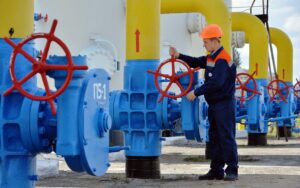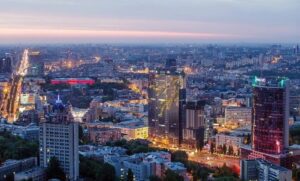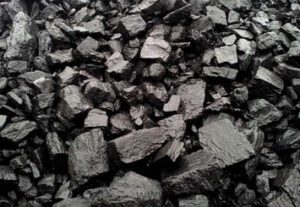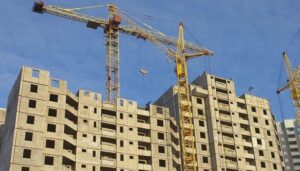
The National Bank of Ukraine (NBU) condemns the decisions of businesses and people in the current difficult situation to set prices for goods and services in foreign currencies, in particular in dollars or euros.
“Setting prices in Ukraine in foreign currency is illegal. Such actions are not only immoral in a war, but are also a direct violation of Ukrainian legislation,” the National Bank said in a statement on Thursday.
The NBU recalled that the hryvnia as a national currency is the only legal tender on the territory of Ukraine and must be accepted by all individuals and legal entities without any restrictions throughout the country and for all types of payments in accordance with Article 35 of the Law “On the National Bank of Ukraine”.
The regulator clarified that, in particular, he became aware of cases of setting prices for rental housing in euros in Ukraine, which violates the law.

The spot price for gas in Europe continues to soar and is already 57% above Tuesday’s closing.
Prices for the nearest, April futures contracts at the TTF hub have broken the $2,000-mark, rising first to $2,011 and then an all-time high of $2,227 per thousand cubic meters on Wednesday afternoon, the previous high being $2,138 on December 21. These contracts closed Tuesday at $1,418, according to ICE Futures exchange data.
But that appears to have been the peak, with prices swinging down on news of a new short-term booking for Yamal-Europe pipeline capacity from 3:00 p.m. Moscow time until the end of the gas day. So far it looks like there will be an additional 0.8 million cubic meters per hour, which is 20% of the pipe’s capacity, in which case an additional 15 mcm of Gazprom gas will be delivered to Europe by morning.
The average TTF price on February was $935.
Apart from the Ukraine crisis, gas prices have risen in Europe due to an abrupt drop in temperatures this week and in wind power generation.

Ukraine is preparing decisions in response to the rise in world prices for oil and, accordingly, for petroleum products, First Deputy Prime Minister Yulia Svyrydenko stated.
“Now we see that oil prices are rising at a fast pace, followed by rising prices for petrol and diesel fuel in Ukraine. The government will make the necessary decisions, we are now developing a comprehensive plan to stabilize the situation,” she said during a meeting of the Congress of Local and Regional Authorities in Kharkiv.

Average price of one square meter in new residential complexes in Kyiv in January-2022 is UAH 35,000 ($1,280), the minimum price is UAH 22,900 ($840), according to market research data from the LUN portal.
According to the research results, the average cost of one square meter in new economy class residential complexes of Kyiv in January is UAH 23,000 ($850), comfort class – UAH 27,200 ($1,000), business class – UAH 52,900 ($1,940), premium class – UAH 78,600 ($2,900).
According to LUN analysts, prices vary depending on the location of the facility. So, in the Pechersky district, the average price per square meter in new housing estates is UAH 69,100 ($2,550), in Podilsky – UAH 48,800 ($1,800), Shevchenkivsky – UAH 44,500 ($1,630), Holosiyivsky – UAH 37,500 ($1,380), Dniprovsky – UAH 30,500 ($1,120), Sviatoshynsky – UAH 30,000 ($1,100), Obolonsky – UAH 28,500 ($1,050), Solomiansky – UAH 28,000 ($1,030), Darnytsky – UAH 26,500 ($980), Desniansky – UAH 23,900 ($880).
According to statistics, the average price per square meter in new residential complexes in the suburbs of Kyiv in January is UAH 21,200 ($780). At the same time, in Vyshgorod it is UAH 23,500 ($860), in Brovary – UAH 19,000 ($690), Boryspil – UAH 19,600 ($720), Hatne – UAH 21,700 ($800) , Sviatopetrovsky – UAH 20,200 ($740), Vyshneve – UAH 24,500 ($900), Sofiyivska Borschahivka – UAH 22,800 ($840), Petropavlivska Borschahivka – UAH 23,900 ($880) , Irpen – UAH 23,100 ($850), Bucha and Hostomel – UAH 20,000 ($730).

The majority of cement producers in Ukraine are forced to work with minimum margins due to the rise in coal prices by more than two times, the Ukrcement association has reported.
“The price swing for coal this year did not pass us by. The supply contracts were signed last year at an average price of $60 per tonne, and in August, suppliers agreed to ship coal at a price of at least $175 per tonne. This creates significant pressure on the pricing policy. It is impossible to make cheap goods out of expensive components,” Chairman of the Ukrcement association Pavlo Kachur said in an interview with Interfax-Ukraine.
According to him, the cost of energy is 52-55% of the cost of clinker required for cement production. At the same time, all Ukrainian cement plants have previously been modernized and switched to coal due to the high price of gas.
The situation with the rise in prices for cement in Ukraine due to the rise in prices for coal is not unique and is observed in the markets of other countries, Kachur said.
“For example, Turkish cement producers sharply raised cement prices in July due to the rise in the cost of coal. We proceeded from the fact that we must take into account the needs of consumers. Therefore, some companies significantly minimized margins in order to go through this difficult period with minimal costs for cement plants and the construction market as a whole,” he said.

The housing price index in Ukraine in July-September 2021 amounted to 115.8% compared to the same period in 2020, the State Statistics Service has reported.
According to its data, prices in the primary market rose by 14.3%. Most of all three-room apartments have risen in price – by 16.3%, the least – two-room apartments (by 13.4%).
According to the State Statistics Service, in the secondary market, housing has risen in price by 17% over the year. Three-room apartments added the least in price – 15.8%, two-room apartments added the most (18.4%).
Compared to the fourth quarter of 2020, housing prices grew by 13.8%, in the primary market by 12.5% and in the secondary market by 14.9%.